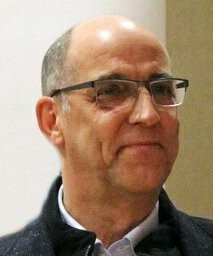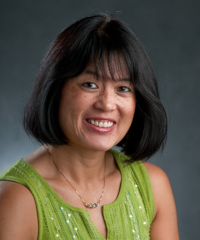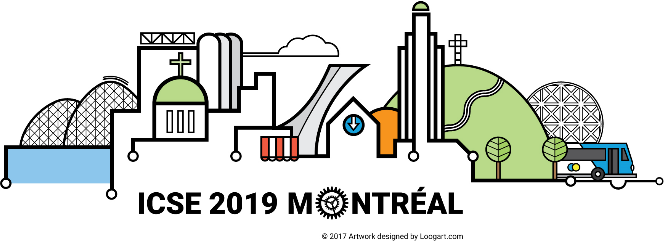About the workshop
Requirements Engineering and Testing (RET) are both important areas within software engineering, each with their research communities and set of practitioners. The coordination of these two fields affect the efficiency and the effectiveness of the entire software development cycle and its lead time, making this an important topic from a business perspective. While much work has been done in the respective fields of Requirements Engineering (RE) and Testing, there exists much more that can be done to increase the connection between the RE and the Testing process - we refer to this as “RET alignment”. Moreover, in many areas, such as in the automotive and telecommunications domains, certification of the system functionalities and qualities depends in part on demonstrating that the system has been thoroughly tested with respect to the requirements.
The objective of this workshop is to address the interplay of Requirements Engineering (RE) and Testing, in research and industry, including the challenges that come with connecting requirements and testing. The goal of this workshop is to highlight the importance of this cross-disciplinary research area and to develop a body of knowledge for RET. The first workshop (held in conjunction with the IEEE International Requirements Engineering Conference 2014) produced a map of the area of RET including 20 topics covered by this new research area. This map includes topics that are related to processes, practices, artefacts, methods, techniques, tools and softer aspects like the communication between roles in the software engineering processes.
The workshop aims to provide a dedicated forum for exchanging ideas and best practices and to foster industry-academia collaboration on this topic. In this way, the workshop connects the (currently) separate communities of RE and Testing.
RET 2019 will be co-located with the International Conference on Software Engineering (ICSE) in Montréal, Canada.
Keynote Speakers

Bernd Lehnert
SAP, Canada
Adapting Software Engineering Processes to Disruptive Changes
After a short overview of SAP, major software engineering processes at SAP will be introduced. New business models or new business scenarios sometimes lead to disruptive changes to these processes. On the basis of two disruptive changes from the recent past, their impact on software engineering processes at SAP will be explained by real word examples.

Betty H.C. Cheng
Michigan State University, USA
A Multidisciplinary Approach to Requirements-based Adaptive Testing of Autonomous Systems
Increasingly, software is expected to autonomously adapt its behavior at run-time in response to changing conditions in the supporting computing infrastructure and the surrounding physical environment. In order for an adaptive system to be trusted, it is important to have mechanisms to ensure that the program functions correctly during and after adaptations. It is challenging to develop and validate a self-adaptive system (SAS) that satisfies requirements, particularly when requirements can change at run time. Testing at design time can help verify and validate that a SAS satisfies its specified requirements and constraints. While offline tests may demonstrate that an SAS is capable of satisfying its requirements before deployment, an SAS may encounter unanticipated system and environmental conditions that can prevent it from achieving its objectives. In working towards a requirements-aware SAS, this talk overviews a framework that supports run-time monitoring and adaptation of tests for evaluating whether a SAS satisfies, or is even capable of satisfying, its requirements given its current execution context. Then we describe specific techniques that instantiate this framework, which apply a multidisciplinary approach to support requirements-based adaptive testing of an SAS at run time.
Betty's Biography.Betty H.C. Cheng is a professor in the Department of Computer Science and Engineering at Michigan State University. She is also the Industrial Relations Manager and senior researcher for BEACON, the National Science Foundation Science and Technology Center in the area of Evolution in Action. Her research interests include self-adaptive autonomous systems, requirements engineering, model-driven engineering, automated software engineering, and harnessing evolutionary computation and search-based techniques to address software engineering problems. These research areas are used to support the development of high-assurance adaptive systems that must continuously deliver acceptable behavior, even in the face of environmental and system uncertainty. Example applications include intelligent transportation and vehicle systems. She collaborates extensively with industrial partners in her research projects in order to ensure real-world relevance of her research and to facilitate technology exchange between academia and industry. Her collaborators include Ford, General Motors, ZF, BAE, Motorola, and Siemens. Previously, she was awarded a NASA/JPL Faculty Fellowship to investigate the use of new software engineering techniques for a portion of the NASA space shuttle software. She has recently launched new projects in the areas of model-driven approaches to sustainability, cyber security for automotive systems, and feature interaction detection and mitigation for autonomic systems, all in the context of operating under uncertainty while maintaining assurance objectives. Her research has been funded by several federal funding agencies, including NSF, AFRL, ONR, DARPA, NASA, ARO, and numerous industrial organizations. She serves on the journal editorial boards for Requirements Engineering and Software and Systems Modeling; she is Co-Associate Editor-in-Chief for IEEE Transactions for Software Engineering, where she previously served twice as an Associate Editor. She was the Technical Program Co-Chair for IEEE International Conference on Software Engineering (ICSE-2013), the premier and flagship conference for software engineering.
She received her Bachelor of Science degree from Northwestern University, and her MS and PhD from the University of Illinois-Urbana Champaign, all in computer science. She may be reached at the Department of Computer Science and Engineering, Michigan State University, 3115 Engineering Building, 428 S. Shaw Lane, East Lansing, MI 48824; www.cse.msu.edu/~chengb.




